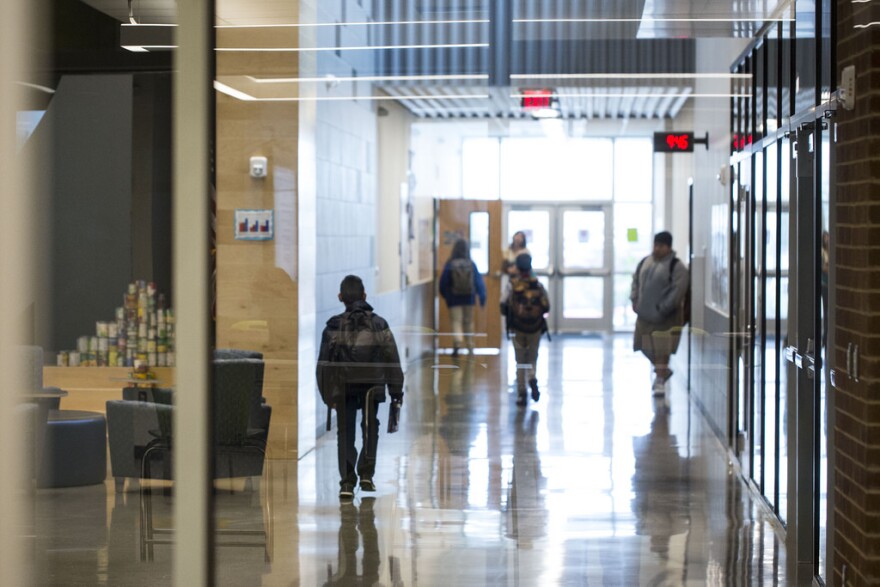The Austin Independent School District is changing its disciplinary practices after a new report showed Black students were five times more likely to get disciplined than white students. Hispanic students were twice as likely to get suspended compared to white students, the report found.
The report, released Thursday, found that most of the students who were disciplined were in middle school. Twenty-five percent of Black and 14% of Hispanic middle-school students were suspended or received other types of punishment last school year. Only 6% of white middle-schoolers received suspensions.
At a board meeting Thursday, district administration laid out a plan to address these gaps. One strategy staff presented was to have assistant superintendents work with principals to monitor teachers who refer a lot of students for suspensions or other disciplinary actions that take students out of the classroom. When evaluating its data, AISD found referrals for suspensions at some schools were made by only a handful of teachers.
“In many instances with our middle schools, these are first-year teachers,” Anthony Mays, AISD's chief of schools, said. “You can imagine what it’s like to be 20 and 21, and coming into a classroom and the learning curve that exists. We’re trying to make sure we’re proactively providing those teachers with what they need to meet student needs successfully.”
Superintendent Stephanie Elizalde said the district is going to provide more coaching and support to teachers, so students who break rules or disrupt class don't miss out on learning.
“None of this should be seen as a 'gotcha.' All of this should be seen as support," she said, "being able to provide that coaching so that we don’t get to a point where a teacher has 124 referrals [for disciplinary action] at a high school or a middle school.”
The district is getting rid of long-term in-school suspensions, which keeps students out of the classroom for 30 days or more. It's also changing a policy that allows out-of-school suspensions to be left to a principal’s discretion. Instead, a principal would have to consult with district administrators before that punishment would be instituted.










